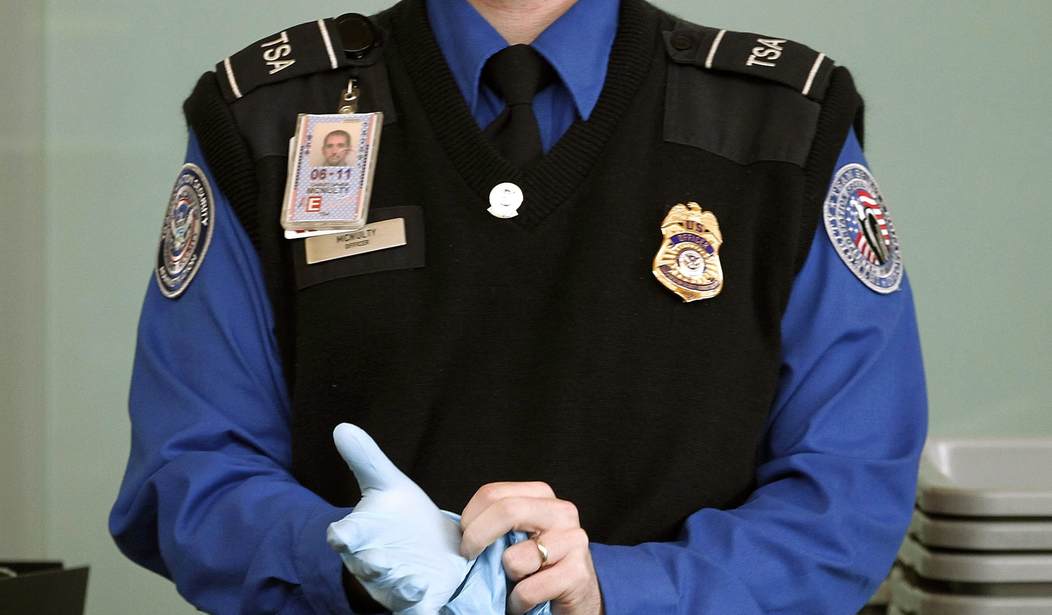WASHINGTON – The Transportation Security Administration has been misusing its power to withhold certain sensitive documents from view under the guise of maintaining safety, according to a congressional report, while actually endeavoring to keep potentially disconcerting information from the public eye.
The House Oversight & Government Reform Committee, in an unusual bipartisan finding, determined that the TSA has “abusively and arbitrarily” used a designation known as Sensitive Security Information (SSI) to “hide information from Congress and the public about some ugly realities,” said Rep. Darrell Issa (R-Calif.), the committee chairman.
Rep. John Mica (R-Fla.), chairman of the House Subcommittee on Government Operations, which held a hearing on the issue last week, asserted that the report “confirms that TSA gamed the system to use security classifications to keep Congress and the public from having access to key information in order to protect their turf.”
“TSA must end its arbitrary use of Sensitive Security Information and ensure that security and accountability to the public are its primary concerns,” he said.
The issue was raised in July 2011, when Rep. Jason Chaffetz (R-Utah) disclosed information obtained at a congressional hearing regarding airport incidents involving security breaches. Chaffetz soon thereafter received a letter from Joseph Maher, deputy general counsel for the Department of Homeland Security, which oversees TSA, accusing him of unlawfully releasing the non-classified information obtained at the hearing because it was designated SSI.
Issa, acting on Chaffetz’s behalf, informed DHS that members of Congress are constitutionally protected if they disclose either SSI or classified information. The probe was launched after it was determined that the information cited by Chaffetz was improperly designated as SSI in the first place.
According to the new report, the Federal Aviation Administration in 1974 created a category for sensitive but unclassified information popularly known as “Sensitive Security Information” and issued regulations prohibiting the disclosure of information designated as such as detrimental to transportation security. Under the regulation, documents designated as SSI were exempted from release under the Freedom of Information Act.
In wake of the bombing of a commercial airliner that crashed in Lockerbie, Scotland, in 1988, the FAA broadened the regulation to include, among other things, any information the FAA administrator determined could reveal systemic vulnerabilities within the aviation system. It was later expanded further to limit access to protected information to those persons who have a “need-to-know.”
A committee investigation revealed “possible misuse of the SSI designation by TSA,” according to the report. “Witnesses detailed instances in which TSA barred the release of SSI documents against the advice of TSA’s SSI Office. TSA also released SSI documents against the advice of career staff in the SSI office.”
The probe found that many of the problems related to the SSI designation process emerge from the structure of the regulation itself. The final authority on SSI designation rests with the TSA administrator, who is required to provide documentation supporting the SSI designation. But the committee found evidence of designations made without the administrator offering the written documentation supporting the action.
Due to a “contentious relationship” between the SSI office and the administrator and the failure to follow proper procedures, the SSI office “struggled to carry out its statutory obligations effectively,” according to the report.
“While the TSA administrator has the final authority to determine whether information is SSI, he is also required under the regulations to submit written explanations of his decisions to the SSI office in a timely fashion,” the report said. “Unfortunately, the repeated failure to submit written determinations before taking actions on SSI caused a rift between senior TSA leadership and the SSI office. This rift resulted in inconsistencies, which could be detrimental to the process for protecting sensitive information.”
The TSA has taken some steps to improve the release process but the report maintains it should implement “improvements to ensure that sensitive information is properly protected while non-sensitive information is properly released to the public.”
The report said the TSA issue reveals a broader problem within the federal government regarding the classification of information.
“Limits on such labeling of information are needed to provide greater transparency and accountability to the public while promoting information security,” the report concluded.
Rep. Elijah Cummings (D-Md.) ranking member on the Oversight Committee, said the report revealed TSA’s “longstanding inconsistency with protecting Sensitive Security Information, including its improper designation and release against the advice of agency experts.”
“TSA has made significant improvements to its procedures for handling Sensitive Security Information and I am hopeful that the agency will make further changes to ensure that the process is transparent, the public has access to information it has the right to know, and that information is properly protected,” Cummings said.









Join the conversation as a VIP Member